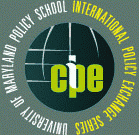Cash Transfers and Guaranteed Minimum Income Programs:
Research, Evaluation, and Policy
Prague, Czech Republic
September 9-10, 2024

-
“Overcoming the Trans-local Paradox of New Municipalism: The ‘Standardized Malleability’ of Basic Income with Digital Municipal Currencies”
Eduardo H. Diniz and Ester Barinaga, Fundação Getulio Vargas
At the onset of the pandemic, Brazil’s Federal government approved an emergency basic income to be transferred to a variety of groups that had not earlier received any of the established welfare programs. Its implementation was however riddled with challenges. With a large informal economy, many Brazilian citizens were missing from the Federal Government’s registry and, even if registered, many did not have a bank account. During a time of increased health risk, agglomerations formed at the doors of government agencies and bank offices across the country as citizens queued to register, renew their national identity cards, and start a bank account through which to receive the emergency basic income they were now eligible to. In contrast, in Maricá – a city of about 200,000 inhabitants in the State of Rio de Janeiro – the newly approved emergency basic income was not only easily implemented reaching out to 42% of its population (Freitas, 2022), it also led to the rapid registration of many informal traders, which helped the enforcement of the lockdown in the city during the pandemic crisis (Rodrigues & Neumann, 2021). The difference: Maricá paid the emergency basic income in Mumbucas – a municipal currency it had been running digitally since 2013. In Maricá, residents simply downloaded the Mumbuca app to register and claim their rightful basic income (Gonzalez et al, 2021).
As the pandemic ebbs away and municipalities are confronted with increased levels of poverty and social vulnerability, in Rio de Janeiro, municipalities are following Maricá’s lead to experiment with their own municipal digital currencies to implement progressive welfare programs. The paper compares the design, governance, and management of six of these municipal currencies (those in Cabo Frío, Iguaba Grande, Saquarema, Itaboraí, and Niterói, besides Maricá). Based on interviews with mayors, directors of social services, coordinators of digital municipal currencies, representatives of community banks, traders and beneficiaries, the paper argues that municipal currencies offer a flexible instrument to adapt public policies to the needs and priorities of each municipality. In this flexibility, we see the potential of municipal currencies as a policy instrument to catalyze a “new municipalist” movement (Thompson, 2020). Enabling municipalities to define and pursue their own autonomous basic income policies, municipalities in Rio de Janeiro are carving a novel path for urban strategies that advance a transformative politics that is locally adapted yet transcends the local scale (Russell, 2017). With municipalities across the world facing increased socio-economic inequality, lessons learned from municipal basic income in those six Rio de Janeiro state cities are relevant beyond Brazil.

